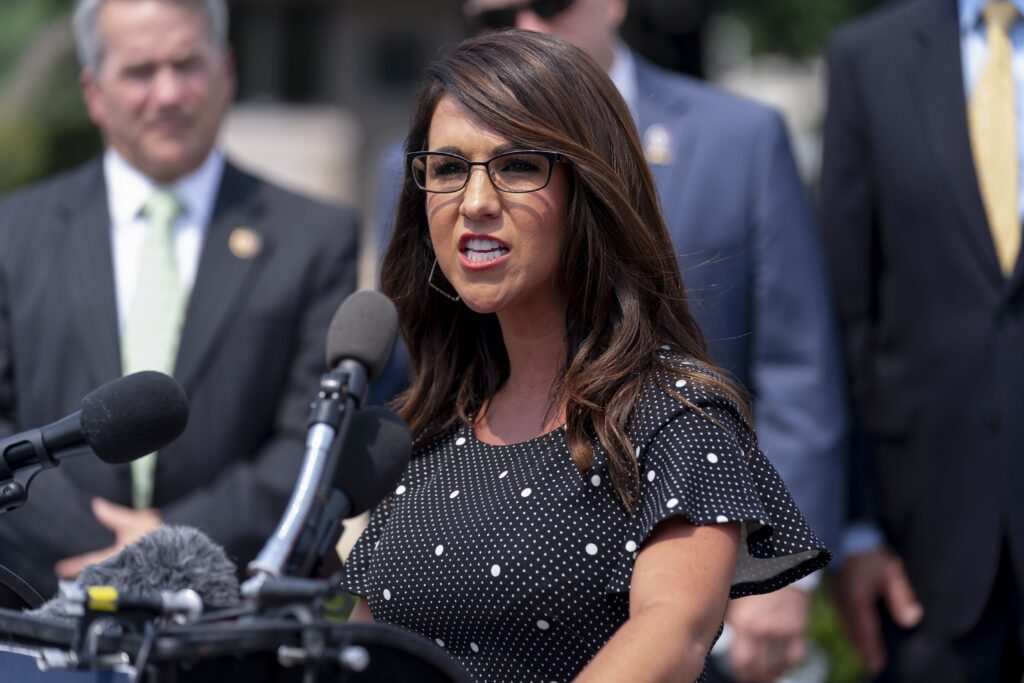Planned Parenthood in ‘race’ to scale up Colorado abortion access to meet out-of-state demand
Planned Parenthood of the Rocky Mountains is in a race to scale up its capacity for abortion services to more out-of-state patients as Colorado and the rest of the country brace for a potential U.S. Supreme Court decision allowing states to decide the parameters of abortion access.
On Monday night, Politico reported that the Supreme Court was internally circulating a draft ruling that would strike down Roe v. Wade and another landmark abortion decision. That ruling won’t be finalized and delivered until this summer, but as written, it would immediately make most abortions illegal in more than a dozen states, with more likely to follow.
If that happens, Colorado would become “an island in the middle of an abortion desert,” said Kristina Tocce, the vice president and medical director of Planned Parenthood of the Rockies. According to CNN, 13 states – including nearby North Dakota, South Dakota, Utah, Texas and Wyoming – have already passed laws that would automatically ban nearly all abortions should Roe be overturned.
Gov. Jared Polis, meanwhile, signed a law last month making abortion access in Colorado a basic right. Tocce said women from states with little to no access to the procedure would travel here above and beyond the current trend, should the Supreme Court’s formally overturn Roe.
“We are going to see a massive influx of patients,” Tocce said of the impact the draft ruling would have if it becomes final. Neighboring Kansas and New Mexico both offer abortion access, but both have fewer clinics than Colorado: According to NPR, Colorado has about 20 clinics, while New Mexico and Kansas have about five each.
That has already started.
In the wake of Texas enacting strict abortion limitations last year, Denver’s Planned Parenthood clinic – the largest in the region – saw a 520% increase in Texas patients seeking the procedure between Sept. 1 and mid-October. A brief from the University of Texas at Austin found that roughly 1,400 Texans left the state each month to get abortion care elsewhere.
“Texas is not small,” Tocce said, “but it is going to be a very, relatively small piece in what we’re looking at nationwide, according to this draft of what we’re seeing.”
She said Planned Parenthood of the Rockies – which covers Colorado, New Mexico and southern Nevada – has been working to increase its capacity for three years, from brick-and-mortar clinics to telehealth services. She said more programs and expansion efforts are underway, and the leaked draft will further spur rapid action in the coming weeks and months.
Dani Newsum, the director of strategic partnerships for Cobalt, which provides support for women traveling to receive abortion care, said coordination between funds like hers “is in full, full swing” to continue to facilitate care for those who want it. That work predates Monday night’s news.
Like Tocce and others, Newsum said the draft ruling wasn’t surprising and that women and families from outside of Colorado have been traveling here in increasing number of late. Nearly a third of the people who were financially supported by Cobalt last year came from Texas, she said, and nearly 10% more were from Wyoming.
But expansion thus far has not been enough to keep up with the number of people who will be affected should Roe be overturned, Tocce said.
Women and families in those states will have to fly or take lengthy road trips to get to clinics in Colorado or farther west, in New Mexico or Nevada. Wait times for care have increased in Denver, she said, both for traveling patients and for those who live in the area. Before the Texas law took effect last year, the average wait time for an abortion at a Planned Parenthood of the Rocky Mountains clinic was roughly a week, a spokeswoman said. It’s roughly doubled in the months since.
That ripple effect will be felt across the country, Tocce and Newsum said.
“We are ready to meet the demand,” Newsum said, “but we have to be frank that the demand is going to increase pressure.”
“It feels a little bit like a race,” Tocce said. “How fast can we expand because no matter how fast it is, with what it looks like is coming, there are still going to be patients who are not going to be served and are going to be in situations that are not going to be optimal in terms of their health, and it’s a really hard place to be as a provider right now.”













